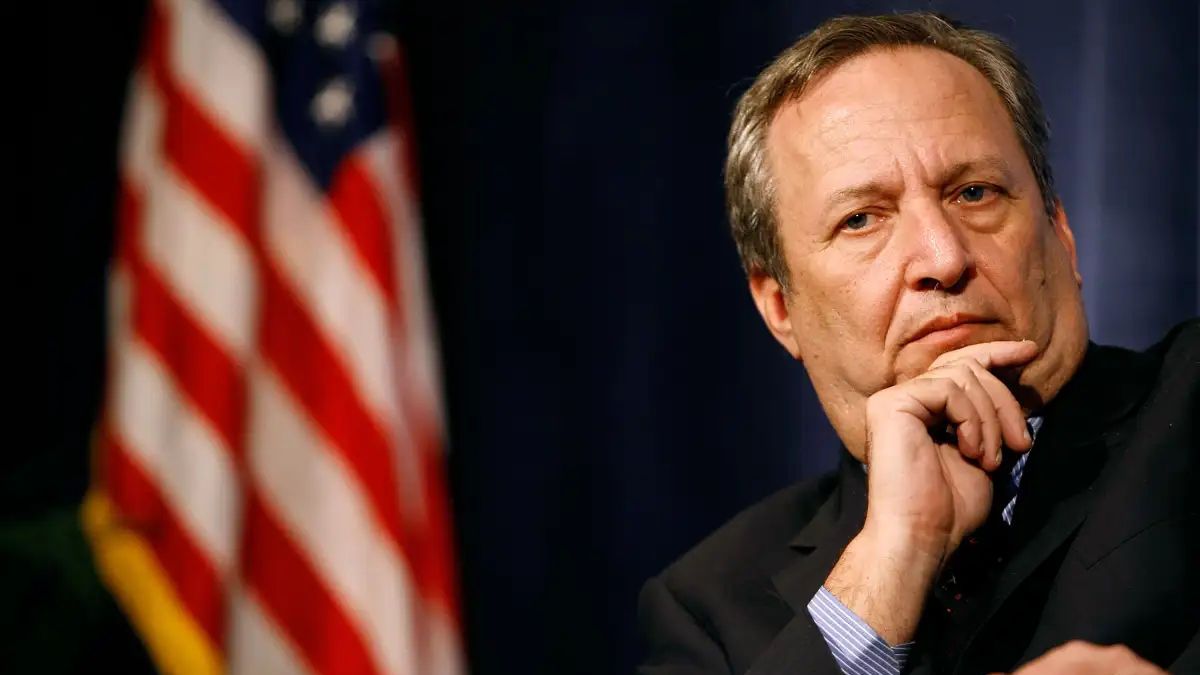After a July report that showed no change from June, some analysts harbored hopes for better August CPI news. Instead, it was up 0.1%, with prices 8.3% higher than a year ago.
“There are different types of prices,” Summers said. “There are the prices of wheat or gasoline or plane tickets, and there are prices like tuition at Harvard. And one type of price goes up and down a lot, and the other type of price reflects an underlying trend in momentum.” While the current seemingly better news reflects the decline in more volatile prices, she explained, the underlying trend is toward higher inflation in fundamentals.
“And the most important thing is the salaries that people receive,” he said, noting that the inflation of “those prices is 5% or 6% per year.” While “headline inflation” appears to be slowing, “if you want to think straight, you need to look at core inflation where inflation is somewhere in the 5% range.” He explained that the rate translates into a level “where prices double every 14 years and inflation is eroding people’s real wages. That’s why inflation is the biggest concern Americans feel right now.” Compounding the problem, she said, is an overly cautious response from the Fed. “Incrementalism and tentativeness are not the best approach,” she argued.
“We must be firm and determined.” Exactly what that means is unclear, although the Fed’s current forecast that it will have to raise rates by 75 basis points “is better than just 50 basis points.” “My feeling is that they are going to have to raise rates more,” he said. “I think it would help if the Fed was more realistic and honest. Belatedly, the Fed has realized that controlling inflation has to be its top policy priority,” he noted.
Summers has long been sounding the alarm that the Biden administration’s pandemic stimulus plan was perhaps too generous and that the nation was headed for trouble. “I looked at the data as I saw it 18 months ago in February 2021,” Summers said. Noting a 2-3% gap between actual and potential GDP and the fact that roughly 14% of GDP came from Biden’s fiscal stimulus, “I thought: This bathtub is going to overflow pretty bad.
We are likely to be over-stimulating the economy, and that will lead to substantial inflation. Sure enough, before long we got to a situation where the ratio of vacancies to unemployment was three times higher than it had normally been, and everywhere you walked, you saw labor shortages and bottlenecks.”
Describing this as an inflationary environment, he saw a crisis in the making that was “not going to subside of its own accord.” While some economists point to global supply chain problems as the main cause of inflation, Summers disagreed that the pandemic lockdowns were the main cause. “There were bottlenecks,” he acknowledged, but “one of the reasons there were bottlenecks is that there was a lot of demand” from consumers who became cash-rich thanks to pandemic relief.
At this point, Summers said a recession is inevitable. “I calculated some time ago that there has never been a time when we’ve had inflation above 4% and unemployment below 4%, and we haven’t had a recession for two years,” she said. “That’s why I think the idea of a soft landing is the triumph of hope over experience.”
Asked what the Biden administration can do to ease inflation or soften the impact of a looming recession, Summers presented limited options. Reducing deficits would be a constructive step, she said, as would “doing everything possible on the supply side.” In this regard, he repeated his call for deregulation, describing how bureaucracy can slow down both growth and trade. However, he acknowledged, these steps are “less important than monetary policy.” “The correct position for the president in general with respect to monetary policy is to respect the independence of the Fed and that monetary policy is the best determinant of inflation, and to keep politics on the sidelines,” he said.
Source: Ambito
David William is a talented author who has made a name for himself in the world of writing. He is a professional author who writes on a wide range of topics, from general interest to opinion news. David is currently working as a writer at 24 hours worlds where he brings his unique perspective and in-depth research to his articles, making them both informative and engaging.




